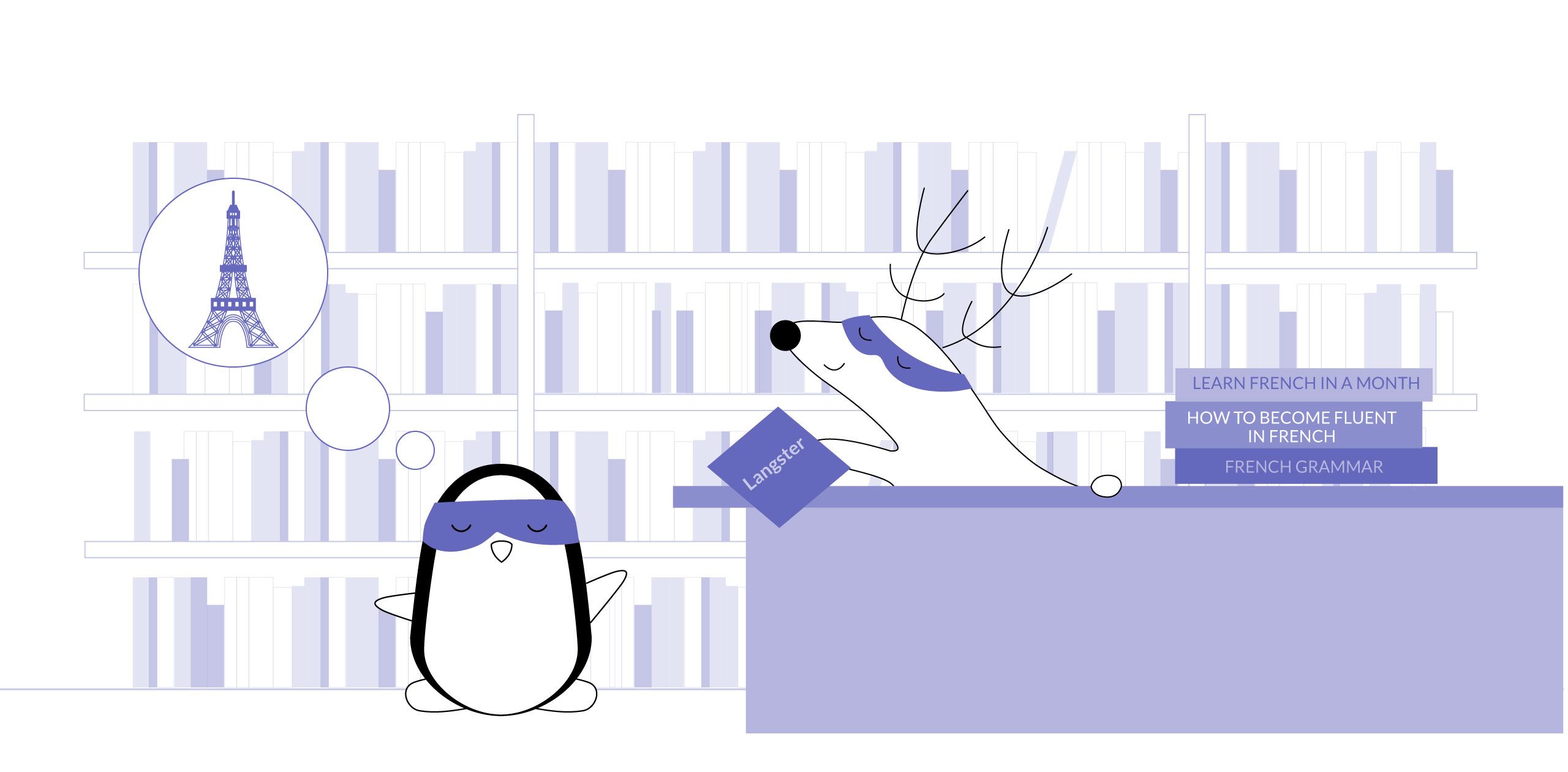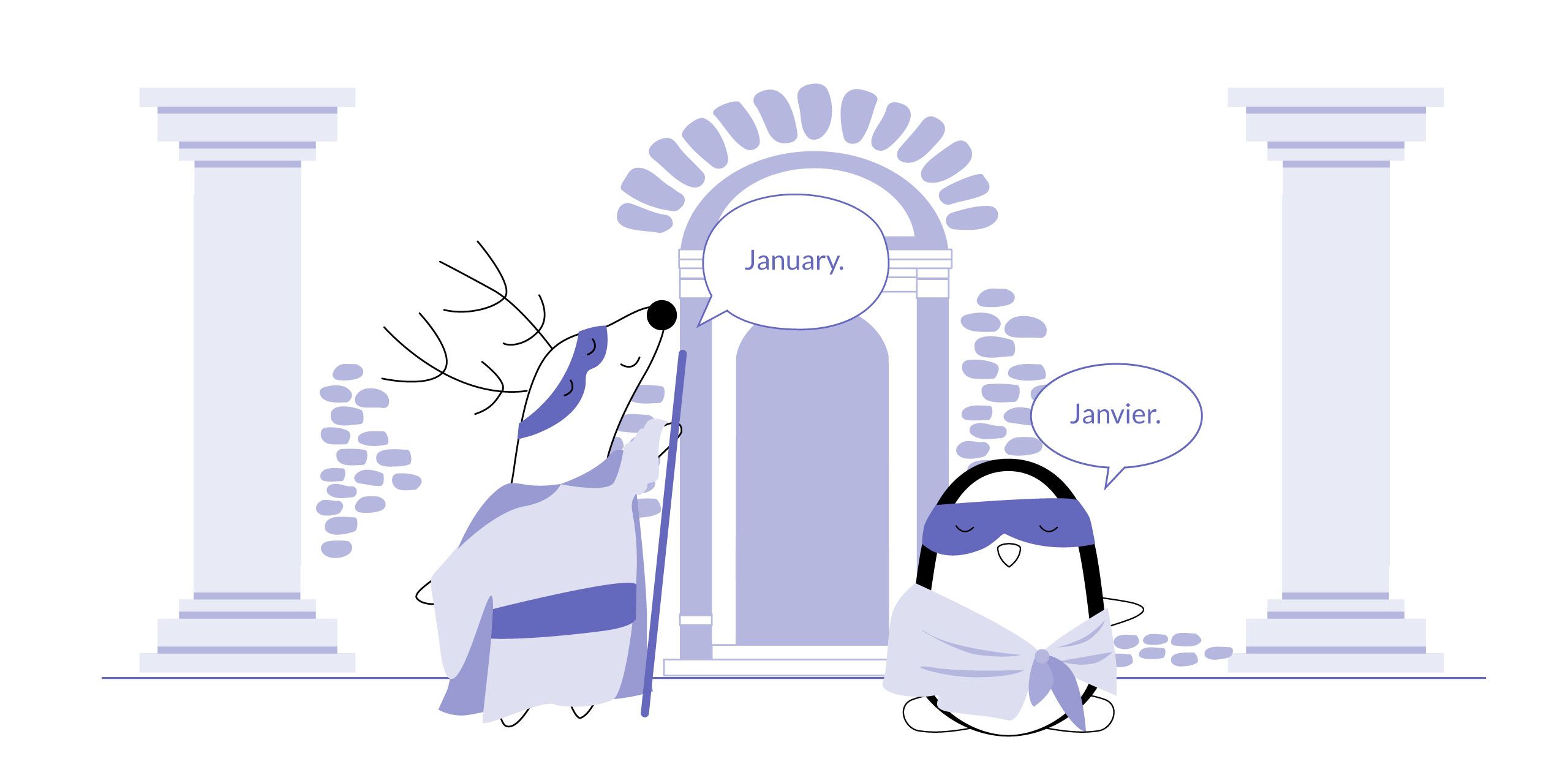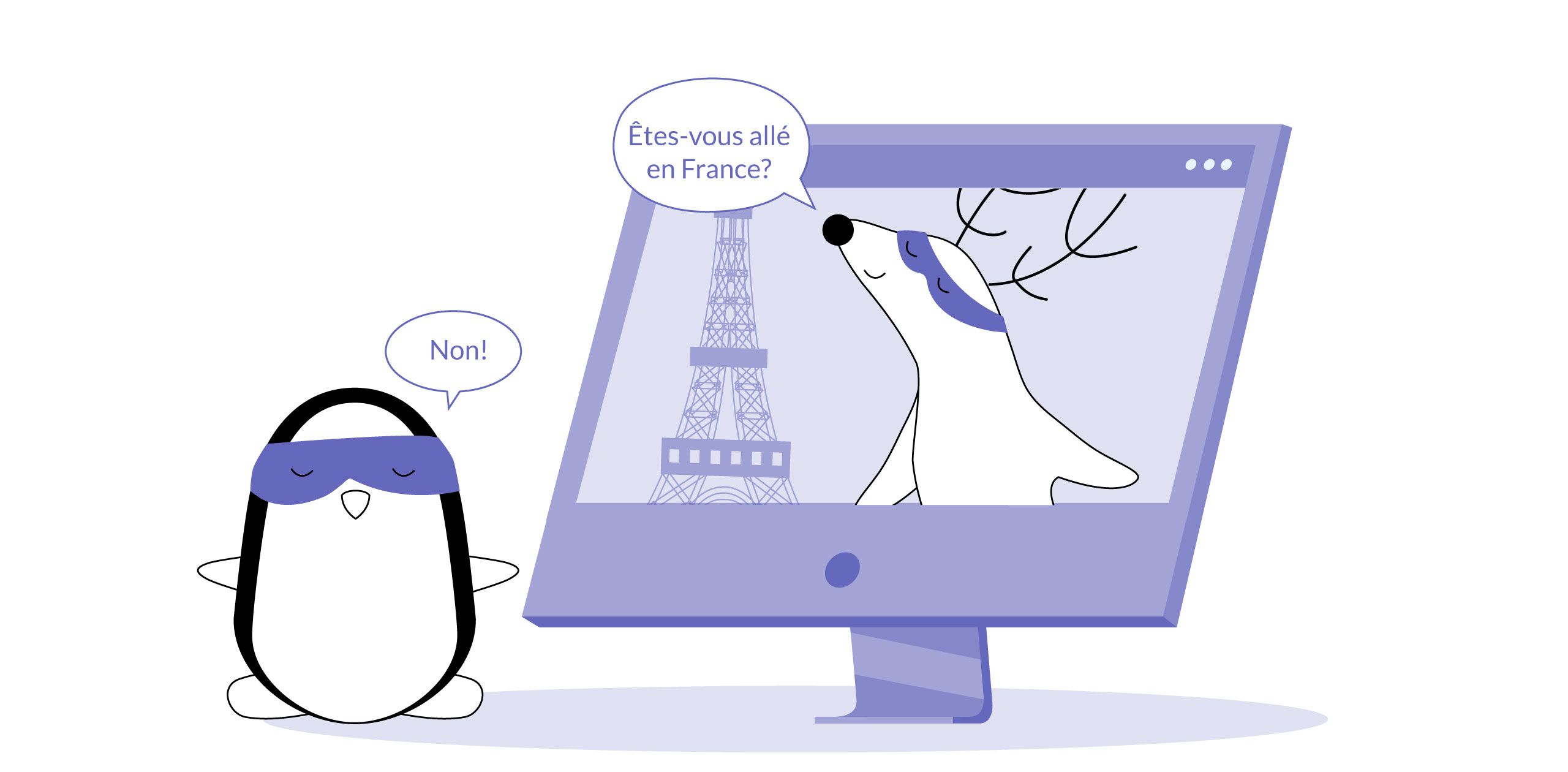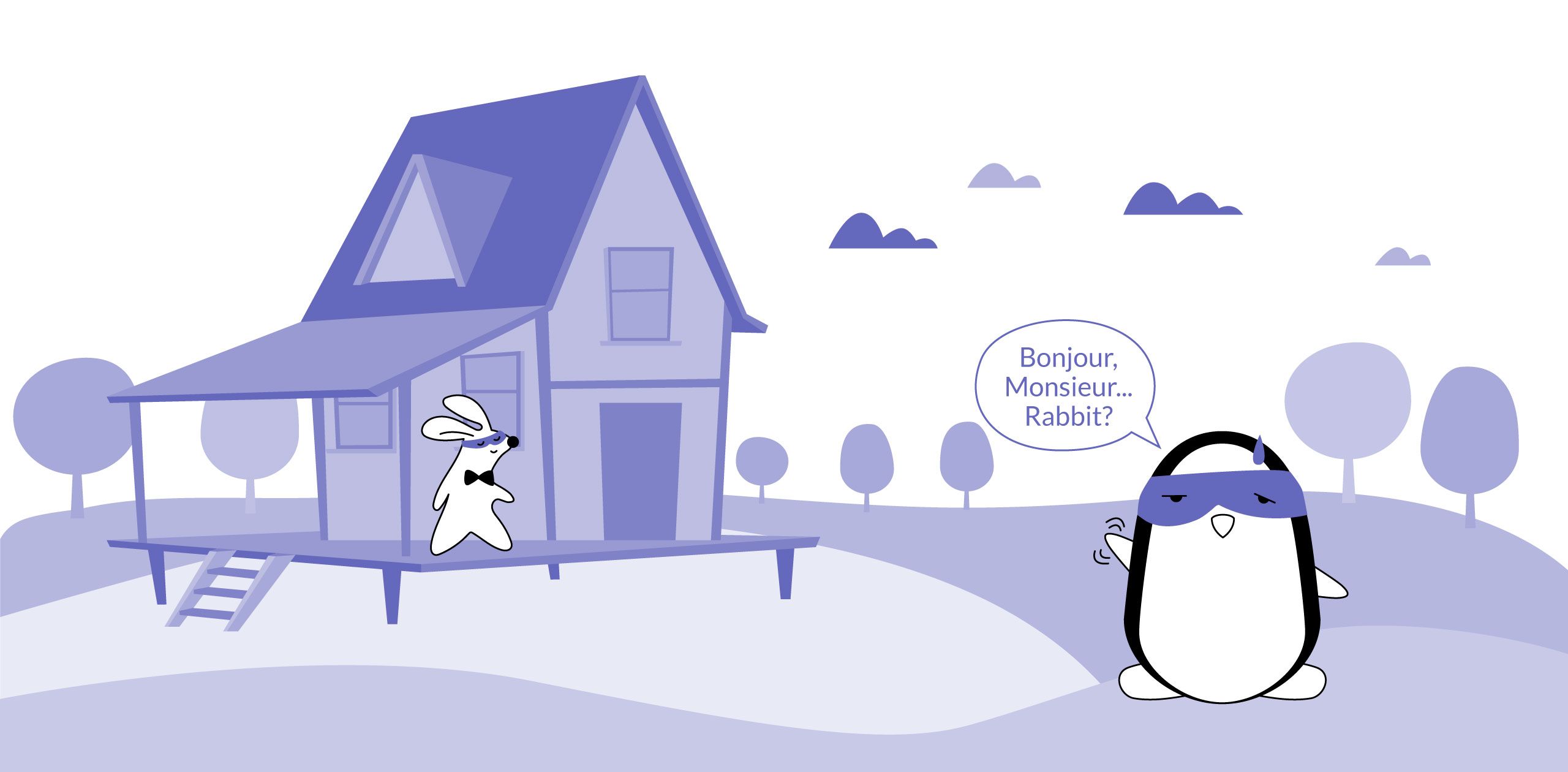
There are currently billions of animals on our planet, and the moment will surely come when you will have to discuss at least one of them with a native French speaker. That means that you should learn some basic animal vocabulary in the French language - and we’re here to help.
First of all, don’t worry - learning the French animal names doesn’t have to be hard. In fact, it can be fun and exciting, especially if you use interesting exercises or practice methods.
Secondly, we’re here to offer you just that. In the article below, you’ll learn the French words for the animals along with some interesting tips for learning them.
Ready to boost your vocabulary and learn how to say “a cat,” “a dog,” and “a seal” in French? Then read on!
Learn French with Langster
French Animals - the Basics
First, let’s dive into the French translation of the most common animal names. Below, you will find several lists of the French words related to different types of wild and domestic fauna.
Note that we often use the masculine name of a certain species - however, there are also feminine forms if you know the animal is female. You might not come across them as often as the ones we mention below, but if you’re interested, you can also check them in the dictionary (just remember to do that correctly).
Pets - Les Animaux Domestique
Animaux domestic (domestic animals) are not the only name the French have for pets. More often, you will hear the phrase “animal de compagnie” used to mean “pet” - literally, “animal of company.” Here’s a short vocabulary list of the most common animaux de compagnie in French
French
English
un chat
a cat
(female: une chatte, kitten: un chaton)
French
English
un chien
a dog
(female: une chienne, puppy: le chiot)
The French - as well as many other languages - have their own translation for “meow” - miaou - and “woof” - ouaf.
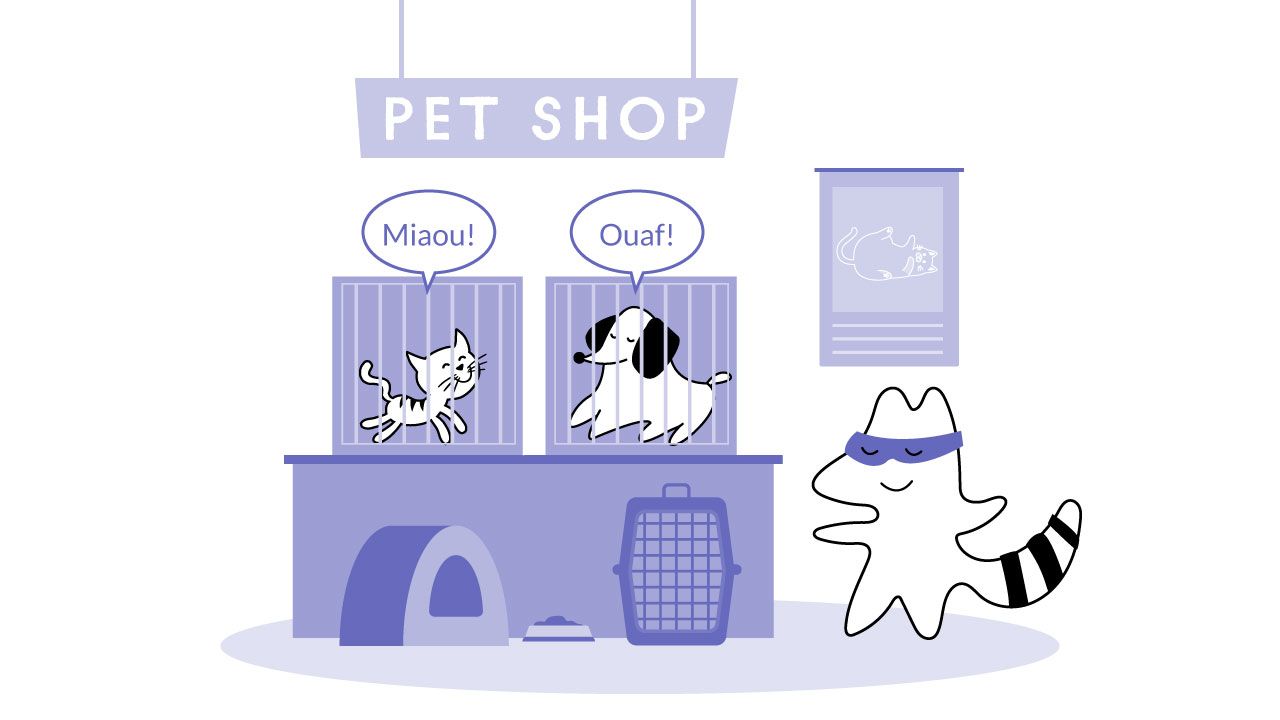
French
English
un poisson rouge
a goldfish
un cochon d'Inde / un cobaye
a Guinea pig
une souris
a mouse
un perroquet
a parrot
un hamster
a hamster
un furet
a ferret
un cheval
a horse
une tortue
a turtle
Farm Animals - Les Animaux de la Ferme
Animaux de la ferme can literally be translated as “animals of the farm,” - nothing challenging there. The same rules work for the other types of animals. For example, you can say les animaux de la mer (animals of the sea) or les animaux de la forêt (forest animals).
Those can also be put in the singular form - for example, “Un poulet est un animal de la ferme.” (A chicken is a farm animal).
French
English
un poulet
a chicken
une vache
a cow
There's a French expression "Oh la vache !" ussed to show surprise, admiration, or disappointment. Its English translation would be "holy cow!"
French
English
un taureau
a bull
un mouton
a sheep
As in English, people can count the sheep to fall asleep faster in French. However, the French word mouton can be conjugated - so in French, you would count: “Un mouton, deux moutons, trois moutons…”
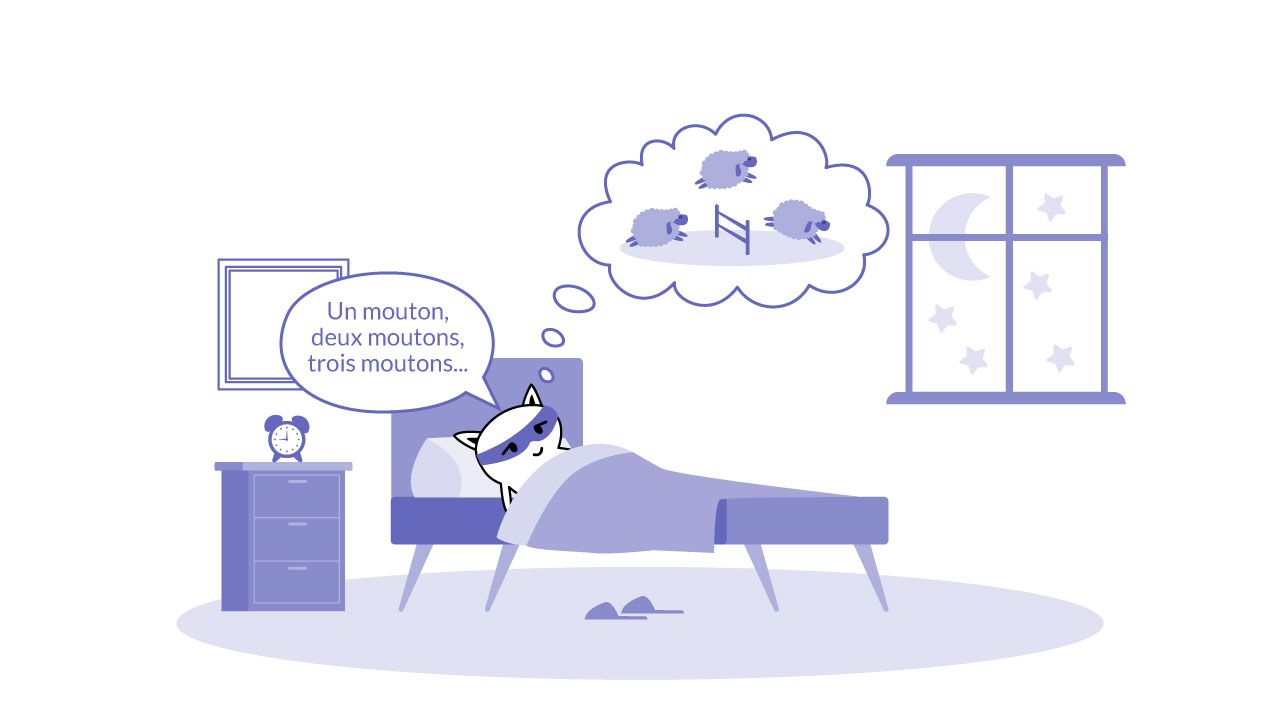
French
English
une chèvre
a goat
A thing you should note here is that chèvre can also mean goat cheese - but in that case, it would be masculine.
French
English
un cochon
a pig
un canard
a duck
une oie
a goose
un âne
a donkey
un coq
a rooster
The last word you might have heard in relation to the famous French dish - coq au vin.
Land Wildlife - La Faune Terrestre
When you look at the names of the wild animals (or zoo animals, if you prefer) in French, you can see that many of them are similar to those in the English language. There are also some animal names derived from Latin - for example, un loup (the wolf), from which we have the famous (thanks to House MD) disease lupus.
French
English
le règne animal
the animal kingdom
un écureuil
a squirrel
un blaireau
a badger
un tamia
a chipmunk
un rat
a rat
A fun thing to note here: say the name of the movie Ratatouille out loud slowly. What can you hear? A good French speaker can hear the words “rat and ear.”
French
English
un hérisson
a hedgehog
un renard
a fox
un cerf
a deer
un ours
a bear
un loup
a wolf
une girafe
a giraffe
un éléphant
an elephant
un lion
a lion
un tigre
a tiger
un guépard
a cheetah
un singe
a monkey
a chimpanzee
un chimpanzé
un zèbre
a zebra
une fourmi
an ant
une araignée
a spider
un scarabée
a beetle
a cockroach
un cafard
un lapin/une lapine
a rabbit
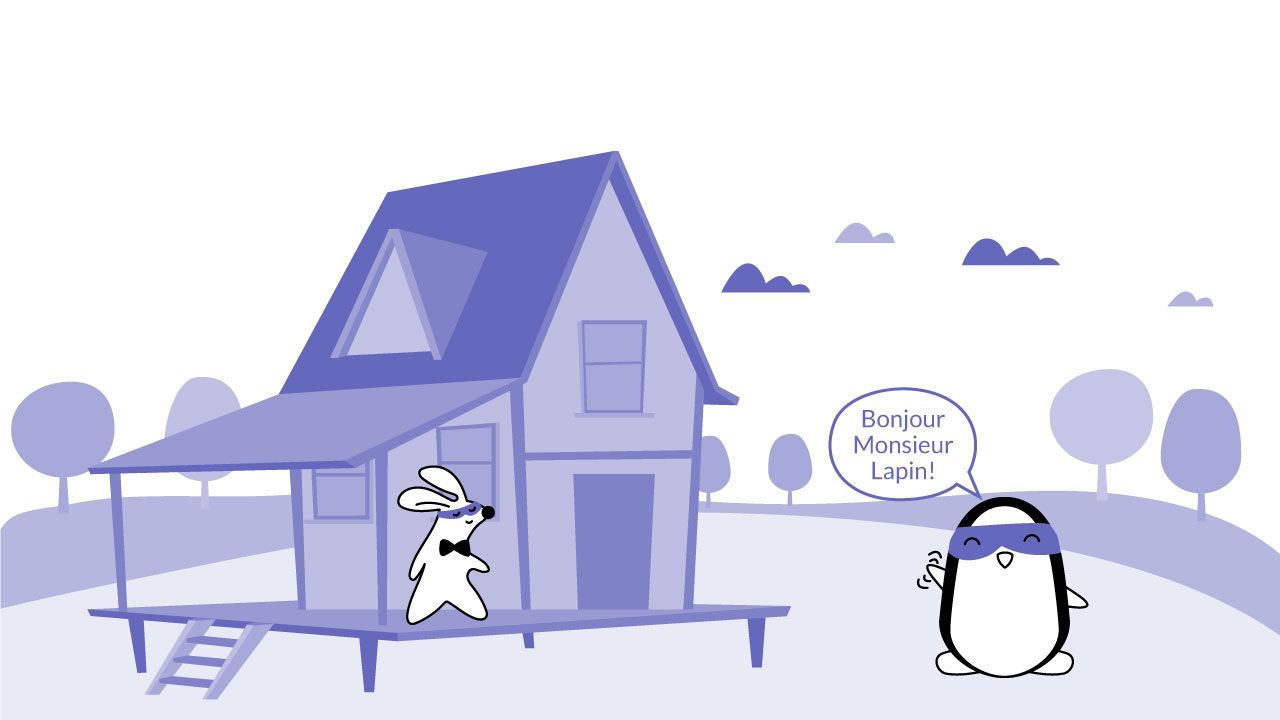
Water Wildlife - La Faune de L'eau
French
English
les animaux marins
Sea animals
un poisson
a fish
Remember about the pronunciation here! Un poisson, /puason/ will mean “a fish”, while /puazon/, spelled as poison will mean “poison.”
French
English
un requin
a shark
une grenouille
a frog
un phoque
a seal
Are you familiar with the funny trend which grew out of someone googling “seal in French?”
French
English
une baleine
a whale
une pieuvre
an octopus
un calamar
a squid
une crevette
a prawn
un homard
a lobster
un crabe
a crab
une étoile de mer
a starfish
un dauphin
a dolphin
une méduse
a jellyfish
une anguille
an eel
un hippocampe
a seahorse
des fruits de mer
shellfish (as food), literally, “the fruit of the sea”
Flying Fauna - La Faune Volante
French
English
un oiseau
a bird
un aigle
an eagle
un moineau
a sparrow
un corbeau
a raven
une corneille
a crow
un rossignol
a nightingale
un dindon/une dinde
a turkey
une autruche
an ostrich
un paon
a peacock
un manchot
a penguin
un pigeon
a pigeon
un cygne
a swan
un hibou
an owl
une cigogne
a stork
un faucon
a falcon
une buse
a hawk
une grue
a crane
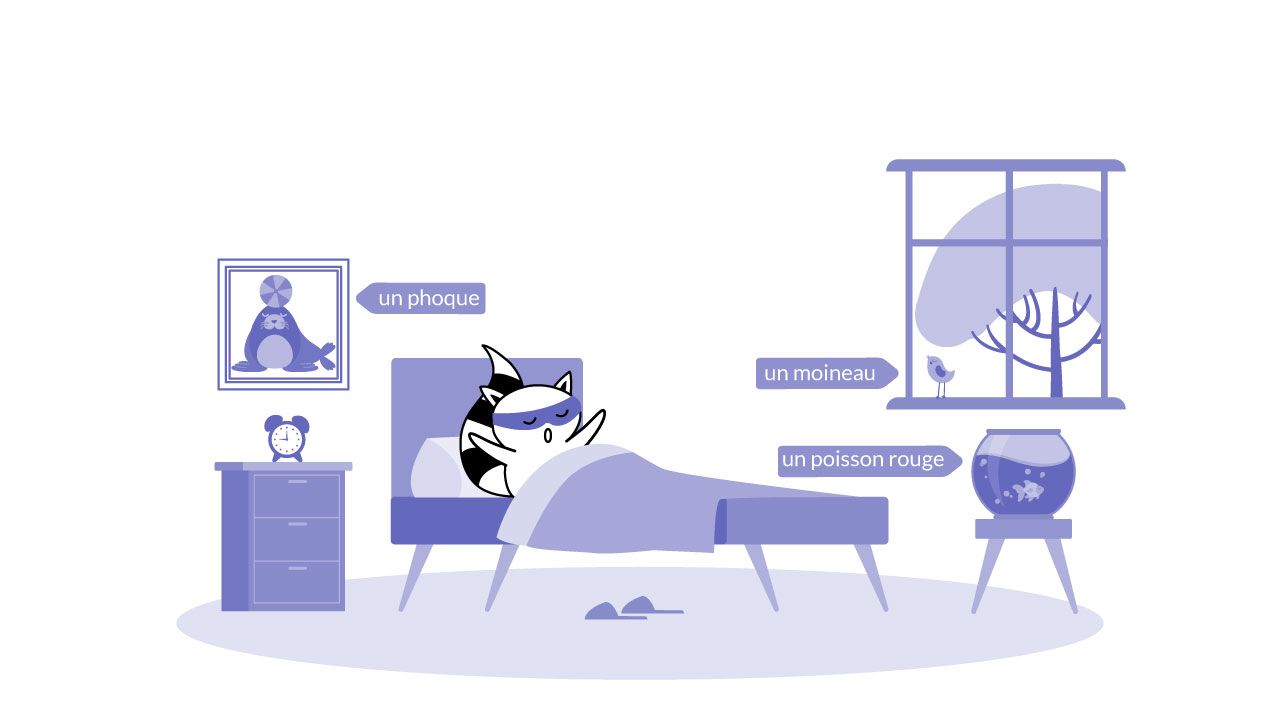
Animals in French - the Issue of Gender
Knowing the French animal vocabulary is not enough if you want to communicate fluently with native speakers. In that case, you also need to know which article to use with which name - even if we’re talking about the simplest words, such as chat (cat) or chien (dog).
First of all, most of the French animals have two different words for the same species of the different gender - for example, un chat and une chatte (male and female cat). Sometimes, just the ending changes, so this shouldn’t be a problem for you to learn them.
Moreover, as you speak about the animal in general, you will most often use just one gender, choosing one of the words we mentioned above.
In most cases, the main thing that changes if you decide to speak about the female or male animal is the article. Check our grammar point about the gender in living beings to learn more about that.
Nevertheless, there are some French animal words that refer separately to the female or male animal of a certain species. You can see that in the examples of the French words - for instance, un cheval (a horse), un étalon (a stallion), and une jument (a mare).
How to Practice Your Animal Vocabulary
Don’t just memorize the words you have above - if you do that, the only thing that might be left in your head is how to say “dog” and “cat” in French. Instead, use other, more engaging methods.
For example, create flashcards which help you remember the words better; do exercises online to practice them more; watch French movies, TV shows and YouTube videos related to the topic so you can immerse yourself with the French words; and, finally, download the apps that might help you learn them faster - such as Langster.
Final Thoughts: Learn the French Animal Vocabulary Easily
French vocabulary regarding the animals is very broad - so don’t expect yourself to learn all of it quickly. Instead, remember to practice and use the words in context more.
For better results, start simple - with “chien” and “chat.” Try to notice them when watching French movies or reading French stories, and use them more often in conversations. Then, slowly add the remaining vocabulary related to different animals so that you’re not stuck with just “chien” and “chat” forever.
Remember that you might not need all of that vocabulary in the future. Focus on the words that seem the most important to you - for now, that will be enough. And remember to have fun - after all, learning French should be exciting, not daunting.







